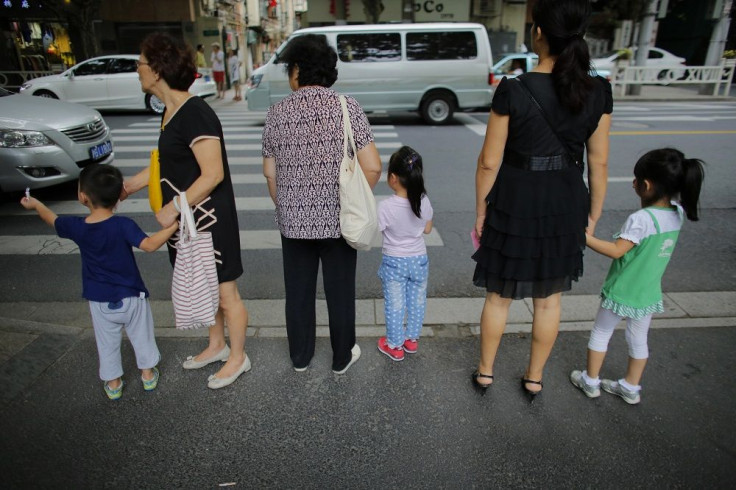China allows couples to have two kids as it abandons one-child policy, but cost of raising another baby makes couples think twice

China is abandoning its one-child policy 35 years after it was put in place in 1980. On Thursday, the Chinese government, after a Community Party meeting, said it would allow all couples to have two children.
The Washington Post reports that among the reasons behind the 180-degree turnaround are concerns over potential manpower shortage and the country’s graying population, which would place more strain on the Chinese economy. The change comes just days after a Chinese economist suggested allowing poor Chinese men to share a wife because of the gender imbalance in the country, which is also caused by the one-child policy.
While Wang Feng, an expert on Chinese affairs at the University of California at Irvine, says the change in policy is good news, the negative impact of the 35-year-old harsh policy – relaxed in 2013 – would take one generation or longer to filter through.
“China for decades to come will have to live with the aftermath of this costly policy,” he says.
As a result of China’s population dynamics, the country’s fertility rate is now estimated to range between 1.4 and 1.7 child per woman. It is significantly lower than the fertility rate in the US and many developed nations.
Government data reported in 2014 that for the third consecutive year, China’s working age population dropped by 3.7 million to 916 million. The decline is expected to grow at a faster rate in coming years, with the number of Chinese people entering the 60 years-and-above age group to hit almost 400 million by early 2030s, based on UN forecasts. This would mean Chinese people belonging to that age group would compose one-seventh of the Asian giant’s headcount.
Cai Yong, a professor at the University of North Carolina and an expert in Chinese demography, says he is pessimistic about the policy change because it came a decade too late, reports The Wall Street Journal.
Meanwhile, Peng Xizhe, a population professor at Fudan University, says while the reform would slightly slow down the aging of Chinese society, it would not reverse it. “It will ease the labor shortage in the long term but in the short term it may increase the shortage because more women might stop work to give birth,” Peng explains.
There are also concerns over the rising cost of living of having a second child, which could strain the budgets of households trying to make ends meet. Li Shuning, a 32-year-old bank worker in Shanghai and a mother to a one-year-old child, says she would not have another one despite the change in policy. “I can’t imagine who would have the energy to raise another child,” she wonders.
Many Chinese couples, unfortunately, think along the same lines as Li.
Contact the writer at feedback@btimes.com.au or tell us what you think below




















